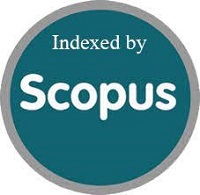Psychometric Validity of the Indonesian People Democratic Attitude Scale
DOI:
https://doi.org/10.15408/jp3i.v12i2.28414Keywords:
Democratic Citizenship, Validity, Item Factor Analysis.Abstract
the Indonesian People Democratic Attitude Scale was designed to measure democratic attitudes with a sample of Indonesian society. It has six dimmension: democratic culture, democratic rights and equality, duties and responsibilities, democratic participation, global citizenship, and citizenship values. The present study investigate to construct validity of the scale scores. The sample in this study consisted of 737 participants from various elements of society throughout Indonesia, with an age range of 17 – 80 years (mean age = 38.60; SD = 10.37). The sample consisted of 536 males and 204 females. Factor Analysis found that this scale is psychometrically sound and this scale can positively contribute to various elements of Indonesian society to know about a person's democratic attitude
References
Altundal, U., & Valelly, R. (2011). Democratic Citizenship. Obo in Political Science. https://www.oxfordbibliographies.com/view/document/obo-9780199756223/obo-9780199756223-0013.xml
Blackburn, S. (1994). Gender interests and Indonesian democracy. Australian Journal of Political Science, 29(3), 556–574. https://doi.org/10.1080/00323269408402312
Browne, M. W., & Cudeck, R. (1992). Alternative Ways of Assessing Model Fit. Sociological Methods & Research, 21(2), 230–258. https://doi.org/10.1177/0049124192021002005
Cai, L. (2010). High-dimensional Exploratory Item Factor Analysis by A Metropolis–Hastings Robbins–Monro Algorithm. Psychometrika, 75(1), 33–57. https://doi.org/10.1007/s11336-009-9136-x
Dalton, R. J., Sin, T., & Jou, W. (2014). Understanding Democracy: Data from Unlikely Places. Journal of Democracy, 18(4), 142–156. https://doi.org/10.1353/jod.2007.0065
Ehrenberg, V. (1950). Origins of Democracy. Historia: Zeitschrift Für Alte Geschichte, 4(1950), 515–548.
Forero, C. G., Maydeu-Olivares, A., & Gallardo-Pujol, D. (2009). Factor Analysis with Ordinal Indicators: A Monte Carlo Study Comparing DWLS and ULS Estimation. Structural Equation Modeling: A Multidisciplinary Journal, 16(4), 625–641. https://doi.org/10.1080/10705510903203573
Fuad, A. B. B. (2014). Political Identity and Election in Indonesian Democracy: A Case Study in Karang Pandan Village – Malang, Indonesia. Procedia Environmental Sciences, 20, 477–485. https://doi.org/10.1016/j.proenv.2014.03.060
Fukuyama, F. (2005). “Stateness” First. Journal of Democracy, 16, 84–88. https://doi.org/10.1353/jod.2005.0006
Groot, I. de. (2011). Why We Are Not Democratic Yet. In W. Veugelers (Ed.), Education and Humanism: Linking Autonomy and Humanity (pp. 79–93). SensePublishers. https://doi.org/10.1007/978-94-6091-577-2_6
Hu, L., & Bentler, P. M. (1999). Cutoff criteria for fit indexes in covariance structure analysis: Conventional criteria versus new alternatives. Structural Equation Modeling: A Multidisciplinary Journal, 6(1), 1–55. https://doi.org/10.1080/10705519909540118
Irawan, B. B. (2016). PERKEMBANGAN DEMOKRASI DI NEGARA INDONESIA. Jurnal Ilmiah Hukum Dan Dinamika Masyarakat, 5(1), Article 1. https://doi.org/10.36356/hdm.v5i1.312
ITC Guidelines for Translating and Adapting Tests (Second Edition). (2018). International Journal of Testing, 18(2), 101–134. https://doi.org/10.1080/15305058.2017.1398166
Knekta, E., Runyon, C., & Eddy, S. (2019). One Size Doesn’t Fit All: Using Factor Analysis to Gather Validity Evidence When Using Surveys in Your Research. CBE Life Sciences Education, 18(1), rm1. https://doi.org/10.1187/cbe.18-04-0064
Mappiasse, S. (2006). Developing and Validating Instruments for Measuring Democratic Climate of the Civic Education Classroom and Student Engagement in North Sulawesi, Indonesia. International Education Journal, 7(4), 580–597.
Mutaqin, Z., School, L., Islam, U., Syarif, N., & Jakarta, H. (2017). The Strong State And Pancasila: Reflecting Human Rights in the Indonesian Democracy *. Indonesian Constitutional Review, 2. https://doi.org/10.31078/consrev221
Schmitter, P., & Karl, T. (1974). What Democracy Is. . . And Is Not. Project MUSE, June. https://doi.org/10.1353/jod.1991.0033
Sen, A. (1999). Democracy as a Universal Value. Journal of Democracy, 3, 3–17.
Wang, J., & Wang, X. (2019). Structural Equation Modeling: Applications Using Mplus (2nd ed.). JohnWiley & Sons Ltd.
West, S. G., Taylor, A. B., & Wu, W. (2012). Model fit and model selection in structural equation modeling. In Handbook of structural equation modeling. (pp. 209–231). The Guilford Press.
Yildirim, C., & Turkoglu, A. (2017). Democratic Citizenship Attitude Scale: A Validity and Reliability Study. Cukurova University Faculty of Education Journal, 46, 649–664. https://doi.org/10.14812/cuefd.303672



